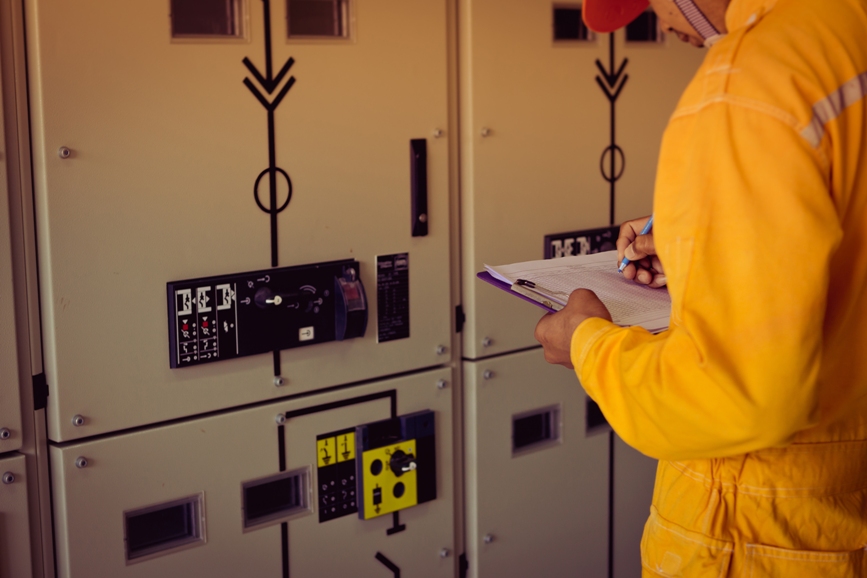ESOS reminder issued

Organisations have been urged to plan ahead and measure their energy use to comply with the Energy Savings Opportunity Scheme (ESOS). Under ESOS, eligible organisations have to complete their compliance with Phase 2 by December 2019. Total energy use has to be measured over a 12 month period to include the qualification date of December […]
Rise of global energy demand

The 2015 BP Energy Outlook 2035 predicts an average rise of 1.4% in global energy demand a year, which is 37% from 2013 to 2035. This growth is mainly driven by China and India. According to the Outlook, the global energy demand growth is not uniform. E.g. in the EU the energy consumption declines. Furthermore, […]
Kensington Hotel – Building Energy Efficiency Investigation
During 2013, the annual average expenditure on gas, electricity and water for the Kensington Hotel was approximately £190,000. The amount of expenditure on energy bills motivated the management to carry out further investigations on energy consumption. For this purpose, Syntegra Consulting have been appointed to undertake a detailed energy audit of the property. The process […]
CHP CARBON TAX EXEMPTION
CHP carbon tax exemption is one of the financial incentives which has the main aim to reduce UK’s carbon usage and provide cost-effective solutions. In order to realize these savings it is necessary to install and operate systems to take financial benefits from these. Geoff Hobbs, Business Development Director at Bosch Commercial and Industrial Heating, […]
ESOS
The Energy Saving Opportunity Scheme (ESOS) main aims is to reduce demand for energy from industry, businesses and the public sector, to reduce the UK’s greenhouse gas emissions by 80% by 2050 and helping households to cut their energy bills. Adopting ESOS the UK’s government meets the requirements set out in Article 8 EU Energy […]
Pros and cons of natural ventilation energy efficiency
Energy efficiency is the keystone of the revolution in new buildings; one concept that has been suggested is natural ventilation in order to reduce the energy consumption (as opposed to mechanical ventilation). The main idea is to use the difference of temperature in the building to generate the air flow (without any fan). Thereby, natural ventilation […]
Daylighting Factors; BREEAM and the Code for Sustainable Homes Improve Quality of Life & Energy Efficiency
In order to promote good daylighting and thereby improve comfort, quality of life and reduce the need for energy to light building interiors, both BREEAM and the Code for Sustainable Homes aim to ensure a minimum amount of daylight within buildings. There are numerous benefits associated with good daylighting within buildings. Firstly, it is known […]
Simplified Building Energy Model (SBEM) Calculations- Explained and Examined
SBEM is developed by the Building Research Establishment (BRE) as a computer program to analyse building energy consumption of buildings other than dwellings, used in support of the National Calculation Methodology (NCM) and the Energy Performance of Buildings Directive (EPBD). SBEM applies to all commercial buildings, i.e. industrial warehouses, school, hotels, pubs, sports halls to […]
The Future of Standard Assessment Procedure (SAP) Calculations
The Standard Assessment Procedure (SAP) is a method for evaluating and comparing the energy performance of dwellings in the UK. They provide a standardised method to underpin the UK’s environmental policies relating to energy performance in dwellings. Based on predefined comfort and occupancy conditions, SAPs look at both the energy consumed by a dwelling and […]
Effective controls as a catalyst for emission reduction in existing buildings
It is estimated that there are approximately 26 million domestic and non-domestic buildings in the UK that accounts for 50% of UK’s overall carbon emissions. Moreover, new buildings will not be able to make a large contribution to reach the carbon reduction target of 80% by 2050 as they amount to only 1 to 2% […]
Global recession creates drop in energy consumption
It was announced in BP’s Statistical Review of World Energy 2010 that energy consumption reflected the pattern of the recession and recovery. On a global scale it was reported that coal consumption was flat and the consumption of oil, natural gas and nuclear power had all declined. Hydroelectric output and other sustainable forms of energy […]
Green Britain day
The emphasis of environmental awareness a healthier and greener way we live and work here in the UK is becoming evidently more and more. This is being pushed in a number of ways by Parliament due to the EU commitment to reduce energy consumption in the UK under the Kyoto agreement. From grass roots awareness […]


You must be logged in to post a comment.